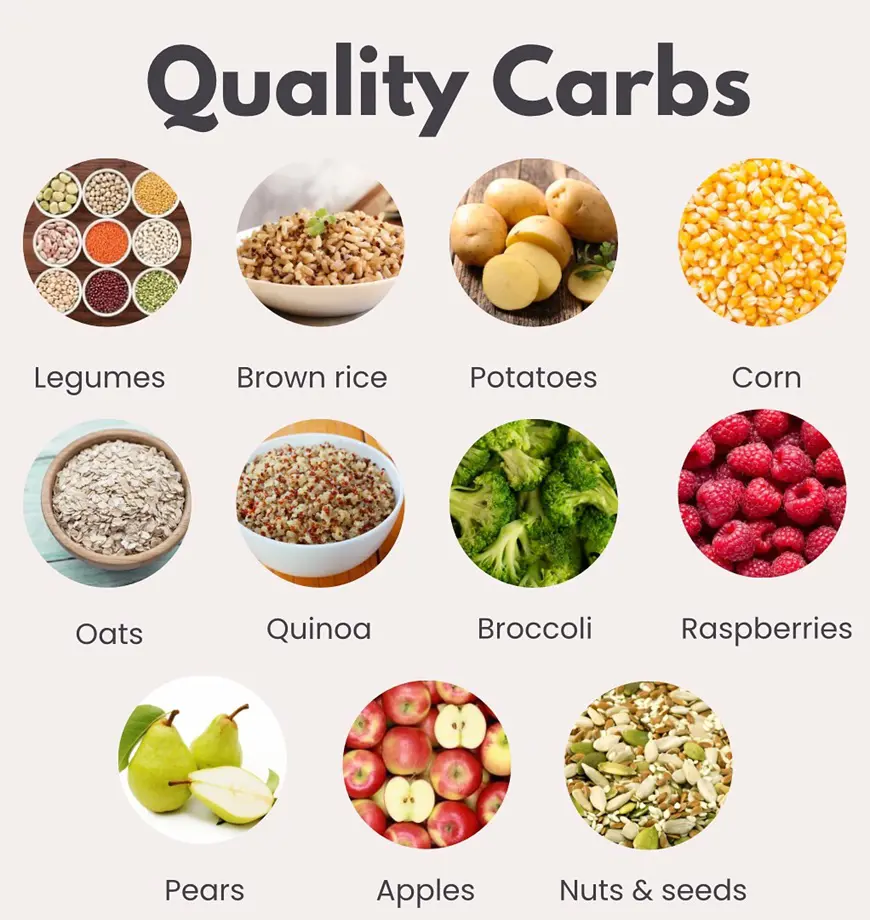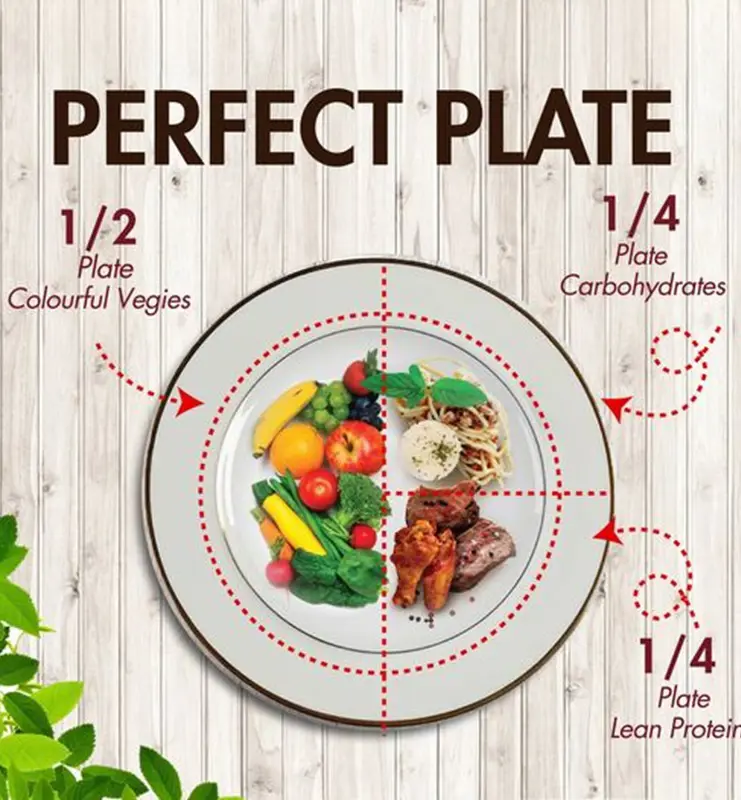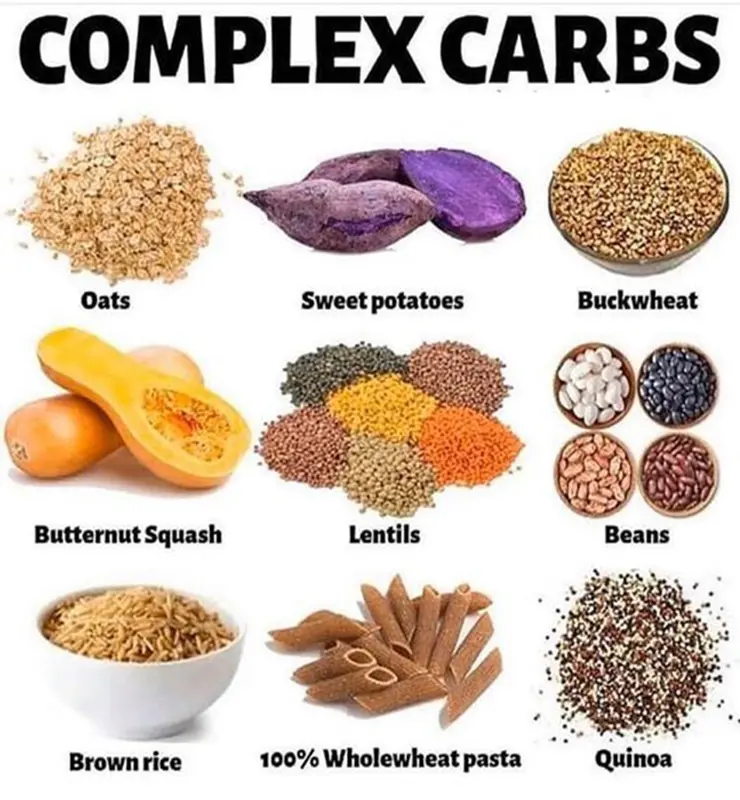How Many Carbs Should You Eat In A Day?

This post may contain affiliate links. If you make a purchase through links on our site, we may earn a commission.
A body's primary energy source, carbohydrate is essential for human health and the RDA supports this by recommending a carbohydrate intake of 45% to 65% of the daily total calorie intake. Dietary carbohydrate control is needed so that the body gets an effective supply of nutrition without overloading it with negative effects like obesity.
According to the international RDAs, the consumption of 130gm of carbohydrates is preferred for daily brain feeding while diabetics may need more adjustments to their carbohydrate intake. In this article, we will inform you about the guidelines regarding the daily allowance of carbs and practice properly regulating the intake to achieve individual health objectives.
Recommended Daily Intake For Carbohydrates

Different principles establish the volumes of the daily energy intake for carbohydrates in the diets. Depending on your age, sex, activity level, and overall health, your carbohydrate requirements will vary. According to the IOM, 45-65% of the total recommended daily caloric intake should be derived from carbohydrates. This means that one should take between 225-325 grams of carbohydrates daily if following the 2,000-calorie diet.
Regarding carbohydrates, the IOM claims that it is essential for adults to consume food containing not less than 130 grams of carbohydrates per day to ensure the neurons receive the minimum glucose intake, which is regarded as the baseline for carbohydrate intake.
Needs Of Carbohydrate In Different Populations
Everyone needs to know the right amount of carbs they should consume, depending on their caloric intake, which in turn is based on age, gender, level of activity, and other conditions he/she may have.
Age

Carb needs are somewhat higher in growing kids and teens since the body requires power for growth and exercise. The general recommendation is similar to adults but for children below 4 years, they should make up about 45-65% of total calories on carbohydrates.
While active, someone may require more carbohydrates but other individuals, especially the elderly may require less carbohydrates because of their reduced physical activity. Nevertheless, carbs may still be required by older adults for their function in the brain and energy purposes. To achieve maximum health requirements without gaining extra pounds, it is suitable to incorporate highly nutritious carbohydrates in the diet, which includes fruits, vegetables, and whole grains.
Gender
Depending on their energy expenditure and especially if they are more physically active, men may require more carbs than women because of the greater muscle mass. That said, they may well be on the upper side of the carb content, particularly in the case of frequent exercising.
On the other hand, on average, women require fewer calories than men because they are smaller in size and are known to have less muscle mass. This may lead to differing total carbohydrate content though the percentage of calories from carbs is typically similar (45-65%).
Health Conditions

Carbohydrates should be well monitored by diabetic people to be in a position to control their blood sugar levels. It could be achieved through carb timing, avoiding the consumption of refined sugars and many others.
Although it is sometimes good to cut down on carbohydrates for some weight-loss seekers, they need to make sure that they take enough carbohydrates to supply energy to their body, especially from nutrient-rich foods like vegetables and fruits, whole grains and legumes.
Pregnancy And Breastfeeding
The energy needs of pregnant and breastfeeding women are higher than normal, so carbohydrates taken by them should meet the body’s nutritional needs and the needs of the growing fetus. Carbohydrates should be obtained from foods with high nutrient density and fiber consumption is necessary for easing digestion and avoiding gestational diabetes.
Activity Levels
If you are not physically active then consumption of carbohydrates would be on the lower side of the pyramid i.e., 45% of the total daily requirement. On the other hand, in moderate exercise, individuals can aim their carb intake for the middle range shooting for 50-60% of total daily calories coming from carbs.
In addition, athletes or those who perform intensive or prolonged exercise (for instance running, cycling, weight lifting, endurance exercises) have higher carbohydrate requirements compared to their non-athletic counterparts. These individuals may require anywhere from 60-70% of their calories from carbs, especially if they train or compete regularly.
Importance Of Carbs In Health
Carbohydrates are essential nutrients that are important for the proper functioning of almost all body organs especially the brain and the muscles. Here is why carbohydrates are important for the health:
Energy Source

Carbohydrates provide approximately 4 cal/g and therefore are even more of a positive energy-supplying nutrient than proteins. They are split into glucose which is utilized by the body for energy and the rest is converted to glycogen which is stored in the liver and muscles. Stored glycogen may also be superior to immediate sources of energy for sustaining muscular work during exercises.
Weight Management
Research has indicated that it’s more important to consider the quality of carbohydrates consumed rather than the amount needed in the consumer’s diet plan. Healthy carbs like whole grains, fruits, and vegetables help control body weight and metabolism. Such foods are mostly rich in fiber which allows for controlled appetite and hence weight control is easier. On the other hand, unfavorable carbohydrates - refined grains and foods with added sugars - are associated with weight gain and obesity due to their poor nutrient density and the ability to make people eat more food.
Enhances Mood And Cognitive Function

On average, the working brain accounts for 20% of energy, and the energy supply for the brain is glucose. Enough carbohydrates imply that one will always have the glucose required for concentration, attention and general cognitive function.
Carbohydrates also bring change to serotonin, which is a neurotransmitter that directly relates to mood level. Carbohydrates increase tryptophan (a serotonin precursor) in the brain which produces feelings of happiness. Whole grain diets and fiber foods are less likely to cause a loss of mental function and nerve damage that are generally associated with neurodegenerative diseases.
How Much Carb Is "Too Much"?
Defining what it means to eat too much carbohydrate is dependent on the desired health objectives, energy expenditure and the nutritional requirements of the consumer. For people with certain medical issues such as diabetes, a recommendation of lower carbohydrate levels may be necessary. Diets above 250 grams of carbohydrates per day may be too much for many people, more so for those with weight or diabetes issues.
AMDR suggests that carbohydrates should make up 45% to 65% of total daily caloric intake. Any amount exceeding this limit can be considered to be excessive carb. Other dietary guidelines propose that added sugar should not account for more than 10 percent of total daily caloric intake.
Consumption Of Carbs In The United States
From 1999 to 2016 period, the average percent of daily calories from total carbohydrates declined slightly from 52.5% to 50.5%. This change is indicative of the observed changes in consumer diet quality, both in terms of quantity and quality, where there has been a decrease in ‘non-nutritive’ carbohydrates, again essentially described as ‘added sugars’, from 45.1% to 41.8% of total energy. In contrast, there was a small rise in the consumption of high-quality carbohydrates, predominantly from whole grain, from 7.42 percent to 8.65 percent of total calorie intake.
However, a good percentage of carbohydrate meals here still come from non-recommended sources which are unhealthy in many ways. About 42% of energy intake is still derived from these poor-quality carbohydrates, which suggests that many Americans still consume high amounts of refined grains and sugars. The contribution made by carbohydrates stands at 45.9% of the total kilo calories for men while women consumed, slightly higher, at 47.4% of Kilo calories.
Risks Associated With Eating Too Many Or Too Few Carbs
Overconsumption and underconsumption of carbs can have several negative impacts on the health of a person. Let us discuss them in more detail:
Too Many Carbs

Increased consumption of carbs especially refined or high glycemic carbs can lead to several adverse health effects on the body. Below are some of the general symptoms of carbohydrate congestion.
- Weight Gain: Research has shown that taking large amounts of carbs exaggerates calorie intake. This means that if you are continuously taking more carbohydrates than your body can handle, the rest is stored as fat and thus results in weight gain.
- Constant Hunger Or Cravings: Blood sugar levels are likely to rise and then fall significantly if you take foods with carbohydrates, preferably those with a high glycemic index. You have initial bursts of energy and then find yourself weaker than before and craving carbohydrates or sugars in an unhealthy manner.
- Bloating And Digestive Discomfort: Carbohydrates should not be taken in abundance as they lead to swelling, increased gas production and uneasiness especially those carbohydrates that are fibrous for instance beans, lentils and some vegetables. Given certain conditions, the body reacts negatively when many carbs are consumed without a good balance of proteins and fats in the diet.
- Brain Fog and Lack of Focus: When blood sugar levels rise and fall sharply owing to consumption of high carbs, one might have phases of daze and confusion, low concentration span and lethargy. This can happen when you constantly consume large portions of refined carbs which lead to spikes and crashes in your blood sugar.
Too Few Carbs

Though excessive carbohydrate intake is unhealthy and causes obesity and other problems, low carbohydrates also cause several physical and mental ailments. Here are some of them:
- Fatigue And Low Energy: Carbs provide fuel to the body's organs most specifically the brain and muscles. When you have a low carb intake, you will feel drowsy or lazy, and although not completely, your capabilities in handling your chores will be limited.
- Constipation: If you have refused high-carb foods, then there is a tendency to develop constipation since carb foods are also rich in fiber which is essential in enhancing digestion.
- Headaches: There are different side effects related to carb withdrawal or any situation where there are insufficient carbs, including headaches which can be attributed to changing blood glucose levels. This is rife especially when individuals reduce their consumption of carbs significantly or place themselves on low-carb diets such as ketogenic diets.
- Sugar Cravings: If the body does not get enough carbohydrates, it begins to demand foods that can quickly supply it with energy such as sugars or any other foods that are rich in carbohydrates.
How To Balance Carbohydrate Intake
Controlling the intake of carbohydrates leads to a sustained energy flow, the improvement of health and the exclusion of different types of diseases. Here are some effective strategies to achieve a balanced carbohydrate intake:
Keep Your Meals Balanced With Essential Macronutrients

Use the plate method to balance your meals: decide that half the plate should be occupied by vegetables and fruits, a quarter by lean protein (this includes beans and chicken) and the remaining by whole grains like brown rice or quinoa.
Adapt The Approach Depending On The Activity Rate
For anyone who engages in many activities that require the use of energy, you may need more carbs to meet the energy requirements. It is possible to increase the amount of carbohydrates ingested during training and reduce it on non-training days.
Choose Unprocessed And Complex Carbohydrates

For complex carbohydrates, it is recommended to take whole grains. The majority of such foods are healthy and contain high fiber to assist in managing blood sugar levels as well as promote feelings of fullness.
Minimize processed foods such as those that are made from white flour, confectioneries, cakes, biscuits and drinks as they contribute to a rise in blood glucose levels, weight and other diseases.
Understand Recommended Intake
We're quite sure that you know about the Recommended Daily Intake of carbs by now. The minimum amount of carbs that can impact the brain positively, is 130gm per day. The AMDR for adults recommends that 45 to 65 percent of total energy intake for the day should come from carbohydrates. Avoid situations where you are taking very few carb foods or situations where you are taking a lot of carb foods because doing both comes with a lot of dangers.
Incorporate Fiber-Rich Foods
Sources of fiber include beans, peas, whole grain products, fresh fruits, and green vegetables. Women’s fiber intake should be 25g and 38g for men daily. High-fiber foods do stunt the digesting process but at the same time help one to have a feeling of being full and therefore prove to be useful in weight control measures.
Recent posts
Lifestyle
Lifestyle
How to Get Rid of Neck Pain: 10 Home Remedies To Fix Stiff Neck
Neck pain is a common issue of today, affecting more than one-third population of the US. The common causes that often lead to stiff neck include sleeping in an awkward position that involves straining of the neck, sitting in a bad posture for long p...
Lifestyle
10 Home Remedies For Loose Motion and Diarrhea
When in tough times, due to issues like loose motion or diarrhea, it would be reassuring for you to know that there are remedies, that also in your own pantry! Whatever the cause may be, be it an infection, food intolerance, or stress, these ingredie...
Lifestyle
How To Eat A Star Fruit
Star fruit is a tropical fruit known for its unique star-like appearance. The fruit can be enjoyed simply, on its own or by adding it on recipes where its extra burst of color and sweet-tart taste can blend well with other ingredients. Whichever way ...
Lifestyle
Is Yogurt Good For You?
Yogurt is a dairy product, a nutrient-packed food. It is often hailed as a health food and there are good reasons for this. If we look into the nutrients present in yogurt; it has numerous of them essential for functioning of our body. In this articl...
Lifestyle
Is Vegan Diet Actually Healthy?
A vegan diet is considered healthy but not most of the time. As all vegan foods have many beneficial nutrients, they also lack some which often sparks the debate. Without animal products, a vegan diet can be believed to have significant health benefi...
Lifestyle
How To Eat Crawfish The Right Way
A crawfish is a small crustacean that resembles a tiny lobster. Though small in size, this freshwater creature is equally delicious as any other seafood, they are tender, sweet and a little salty. Enjoying crawfish may seem challenging as they are ti...





